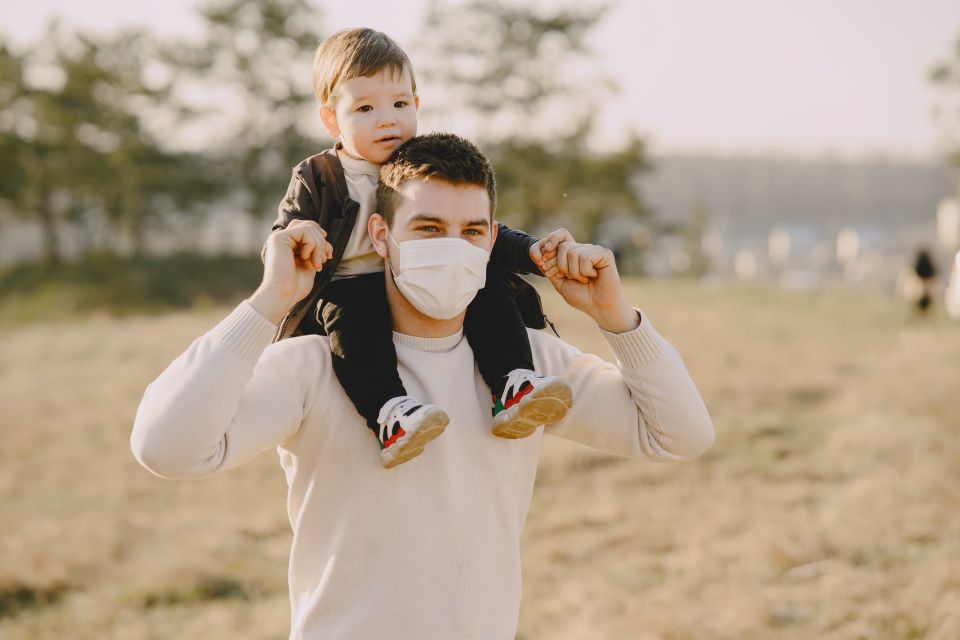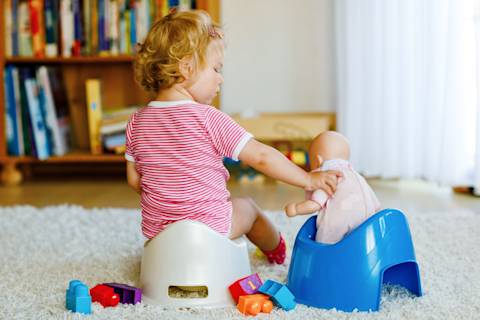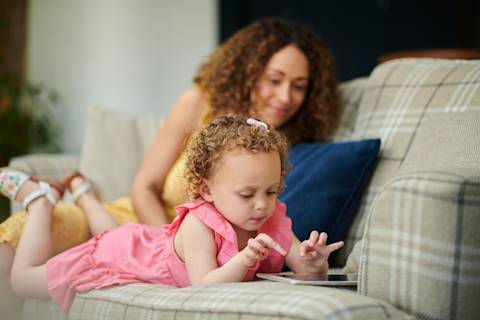Get expert tips from a child psychologist on parenting through these challenging times.

From practicing social distancing to shifting our everyday routines, there's no doubt that we're navigating unprecedented times. As parents and caregivers, we've asked ourselves, "How will this affect my children? How can I best manage this new normal for now?
As we stay physically distant, we hope you can feel more connected than ever through the many state resources out there - along with some expert tips below from child psychologist Skye Stifel, Ph.D., LEP, NCSP.
Experience emotions together. We're all dealing with some pretty big feelings right now – both parents and children.
Talk to your children (at any age) about what's happening and how they are feeling. Don't avoid the topic or act like everything is "normal." your child to talk and ask questions.
Be honest. Share facts using age-appropriate language: "There is a yucky sickness right now." Even if you don't have the answers, let your child be heard. It's okay to say, "I don't know," but reassure them that you are doing everything you can to stay safe.
Share your emotions. This shows your children that it's okay to feel and express their own emotions – and that you're a safe place to do so.
Expect behaviors. Children experience emotions differently than adults. They'll often act out or change their typical behavior as a reaction to what they are experiencing on the inside. Children look to their parents to help them feel soothed and calm. If you notice your child acting differently, acknowledge the behavior and emotion behind it, reassure your child that you are there to love and keep them safe, and help them get back on track with their activity.
Prioritize well-being over schooling. School and school readiness skills are important – but right now, they fall second to your child's emotional well-being. Focus more on your child's emotional needs and stability.
For young children (ages 0-5), "school" is all about play and socialization. You can do those things! Have fun with your child – get down on the floor, build a fort, or play with bubbles in the bath. These special moments together are what your child needs more than ever right now.
If your child is in preschool or kindergarten, school "work" should be only 30 minutes a day, broken into five- to ten-minute chunks of time per activity. Don't make the activities another stressor in your lives – make them another fun way to connect with your child.
Remember that learning does not only happen while sitting at a table with a pencil and paper. Reading books, cooking together, and talking about ideas are all wonderful educational experiences. Children can also learn through technology with adult guidance and support. Talk to your children about what they are watching before, during, and/or after screen time to make the most of whatever technology you choose for your child. Choose online activities that involve your child and encourage movement.
Use technology to connect with others via phone calls and video chatting. Seeing and talking with loved ones and friends is so important for the whole family's happiness and well-being.
Check out California Surgeon General's Playbook on Stress Relief for Caregivers and Kids during COVID-19 for more tips on managing your and your child's wellbeing during this time.
Rest easier with a routine. Maintaining sanity and balance at home can feel more challenging than ever right now. Structure and routine are key because they create predictability. Kids who know what to expect each day are more likely to feel secure and calm. Try to create a routine, even if it is loose, for each day. Here are some tips:
Have breakfast, lunch, snacks, and dinner at generally the same time each day. Eat where you normally eat in your home.
Allow interactive and engaging screen time at the same time each day.
Make a phone call to a loved one at the same time each day.
Get outside as best as you can, while maintaining appropriate social distancing of at least six feet. Enjoy fresh air at different times throughout the day. Being outside can help ensure your child is getting the physical movement he or she needs each day.
Lastly, remind yourself that you are doing the best you can! If you find yourself stressed or experiencing negative emotions, take time for yourself (even if that means your child gets a little more screen time in that moment – that's okay!). When you are stressed, your children will know it and it will affect them too. We will all get through this together by taking it one day at a time.
Written by Skye Stifel, Ph.D., LEP, NCSP






